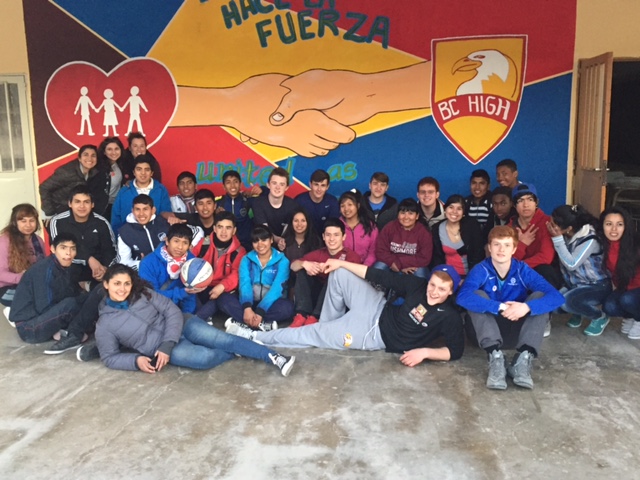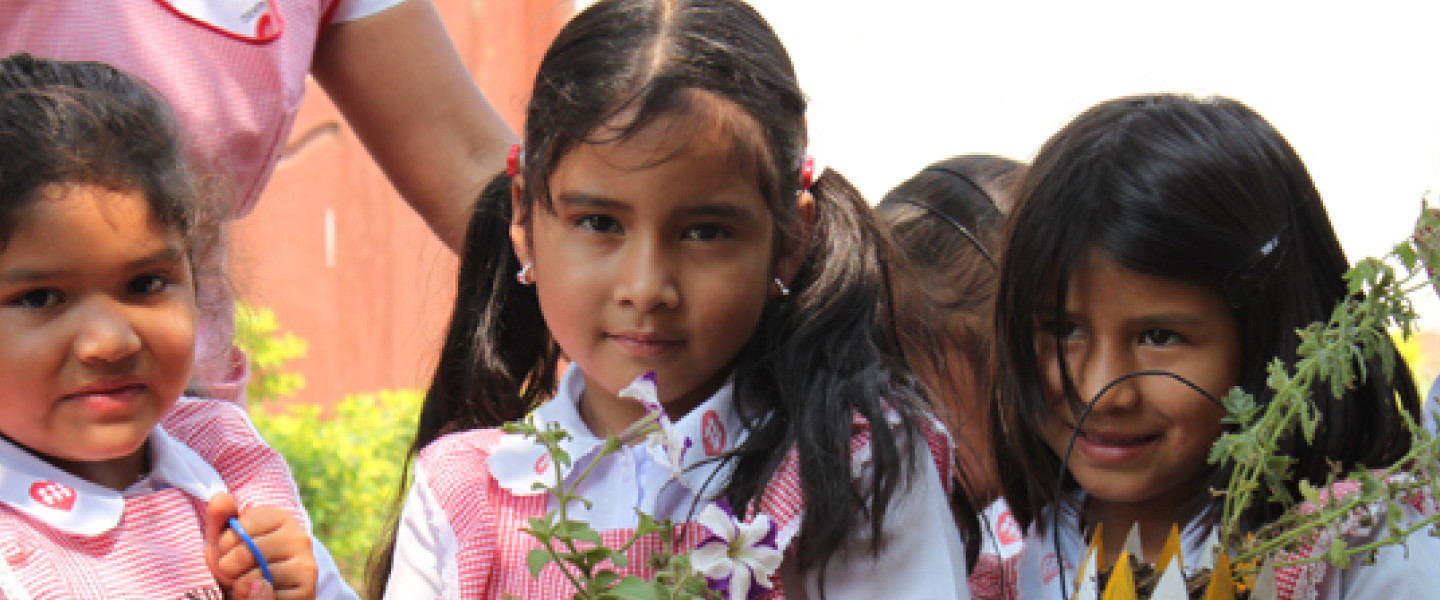
The Hyde Center for Global Education at Boston College High School, along with Friends of Fe y Alegría in the U.S., is participating in the Jesuit School’s Network (JSN) Hemispheres initiative, a venture to encourage “global companionship” among JSN schools during 2016-17 school year.
Elena Gourlis, Assistant Director at the Hyde Center, first came across Fe y Alegría during an immersion trip organized by BC High to Argentina. Friends of Fe y Alegría in the US recently sat down with Elena to discuss her experience in Salta, her hopes for global citizenship education in the U.S. and the role education plays in students’ lives.
How did you first come into contact with Fe y Alegría and what were/are your impressions?
I first learned of Fe y Alegría during the preparation for our trip to Argentina in January 2016. Our trip coordinator, Marian Basin, was determined to include a trip to the Fe y Alegría school is Salta into our experience. (This school is connected to/sponsored by Colegio del Salvador, our brother school in Buenos Aires.) Listening to her describe the amazing work that they do and their commitment to improving the lives of children through education resonated with me as an educator and social justice advocate. I learned as much as I could online about the missions and the programs of Fe y Alegría.
Marian’s commitment to this visit was brilliant, as it was one of the best parts of our experience in Argentina. She deserves significant credit for making this happen and this visit has now become incorporated into our Argentinian experience.
When we got to the school, we were warmly welcomed by the faculty and students. Our boys quickly bonded with the kids from the school and they were all chatting and laughing. Over the course of two days, we all painted walls and two murals, enjoyed a wonderful lunch prepared by the students, watched the boys both get and give some dance lessons, and our students were taught how to play rugby by the boys from Salta.
It was heartwarming to see the ways in which the American and Argentine students quickly became friends despite the differences in backgrounds and cultures and language.
Why did you join the Hyde Center and how has your experience there impacted your views on the need for global citizenship education?
I studied science and taught it for eighteen years, most of which has been at Boston College High School. Given the global nature of science, I think I was fortunate to be presented a more globally- focused view from early on. I have had the privilege to see the world through an Ignatian lens by teaching at BC High. I joined the Hyde Center so that I could dive into working in the field of global education.
Global citizenship education is more important in our world now than ever. We are all connected in more ways now than we ever have been. Injustices in one country affect all of us. And we should all be concerned just as we should all be part of the solution.
We are all brothers and sisters in the eyes of God- as Pope Francis has said. In the US we see a movement toward nationalism and isolationism. In my opinion, this is not an answer to problems in our country or in our world. We all have so much to learn from one another. I have seen how beautiful different peoples and cultures are and how much better I have become by learning from others who are different. Closing borders and keeping people out of our country simply weakens the fabric of our society and narrows our viewpoint.
Why is education and access to quality, inclusive education important to you?
Education opens up entire worlds to students. It is amazing to watch the light turn and to see the interest begin when you teach something that students connect with. This can be life changing.
It is unacceptable that only some of us have access to education. I did nothing to deserve the place in life that I was born into- fortunate enough to be all but guaranteed education. I feel it is my responsibility to advocate for those who do not have the some privileges that I enjoy. I enjoyed access to education because the generations before me worked hard to provide their children with a better life than they had. And, I was born in a country and culture in which education was a norm. I don’t think any of use that have benefitted from this should be satisfied until everyone benefits in the same way. Education is a basic human right that we need to all have.
What, if any, changes will occur in our society as they result of exchanges between students in the global north and global south?
I sincerely believe that if we, as individuals, are able to overcome stereotypes and the fear of ‘the other’, we will be able get to know one another as brothers and sisters with the same basic desire to be happy. Exchanges like the ones we are involved allow students to experience this and live it. I believe that people are less likely to make judgements about cultures and peoples that they know and understand. If our young people can experience new cultures and traditions and appreciate them, they can change the direction of the future.
I believe that we in Jesuit education have the responsibility to use our interconnected network to break down the invisible walls that separate us and strip down the politics and fear that separate us and relate to each other on a human level. We really are not that different despite the continents where we are raised, the traditions we celebrate or the foods we eat.
For more information on Elena’s work at BC High, visit: www.bchigh.edu/page/academics/hyde-center-for-global-education
